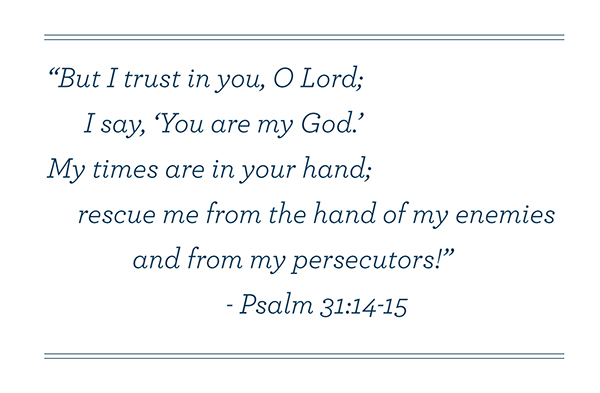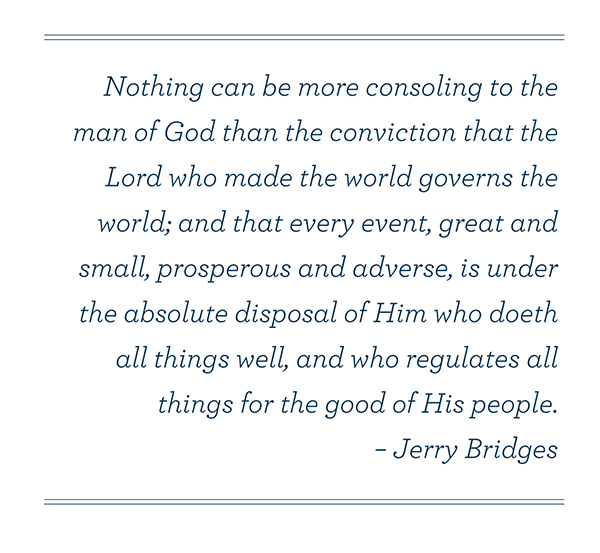"Those who call Thanksgiving "Turkey Day," I suppose, take some such view as this: Unless we have Someone to thank something to thank Him for, what's the point of using a name that calls up pictures of religious people in funny hats and Indians bringing corn and squash? Christians, I hope, focus on something other than a roasted bird. We do have Someone to thank and a long list of things to thank Him for, but sometimes we limit our thanksgiving merely to things that look good to us. As our faith in the character of God grows deeper we see that heavenly light is shed on everything - even on suffering - so that we are enabled to thank Him for things we would never have thought of before. The apostle Paul, for example, saw even suffering itself as a happiness (Colossians 1:24, NEB).
I have been thinking of something that stifles Thanksgiving. It is the spirit of greed - the greed of doing, being, and having.
When Satan came to tempt Jesus in the wilderness, his bait was intended to inspire the lust to do more than the Father meant for Him to do - to go farther, demonstrate more power, act more dramatically. So the enemy comes to us in these days of frantic
doing. We are ceaselessly summoned to activities: social, political, educational, athletic, and - yes - spiritual. Our "self-image" (deplorable word!) is dependent not on the quiet and hidden "Do this for My sake," but on the list the world hands us of what is "important." It is a long list, and its both foolish and impossible. If we fall for it, we neglect the short list.
Only a few things are really important, and for those we have the promise of diving help: sitting in silence with the Master in order to hear His word and obey it in the ordinary line of
duty - for example, in being a good husband, wife, father, mother, son, daughter, or
spiritual father or mother to those nearby who need protection and care - humble work which is never on the world's list because it leads to nothing impressive on one's resume. As Washington Gladden wrote in 1879,
"O Master, let me walk with Thee/in lowly paths of service free ..."
Temptation comes also in the from of
being. The snake in the garden struck at Eve with the promise of being something which had not been given. If she would eat the fruit forbidden to her, she could "upgrade her lifestyle" and become like God. She inferred that this was her right, and that God meant to cheat her of this. The way to get her rights was to disobey Him.
No new temptation ever comes to any of us. Satan needs no new tricks. The old ones have worked well ever since the Garden of Eden, although sometimes under different guises. When there is a deep restlessness for which we find no explanation, it may be due to the greed of
being - what our loving Father never meant us to be. Peace lies in the trusting acceptant of His design, His gifts, His appointment of place, position, capacity. It was thus that the Son of Man came to earth - embracing all that the Father willed Him to be, usurping nothing - no work, not even a
word - that the Father had not given Him.
Then there is the greed of having. When "a mixed company of strangers" joined the Israelites, the people began to be greedy for better things (Numbers 11:4, NEB). God had given them exactly what they needed in the wilderness: manna. It was always enough, always fresh, always good (sounds good to me, anyway, "like butter-cakes"). But the people lusted for variety. These strangers put ideas into their heads. "There's more to life than this stuff. Is
this all you've got? You can have more. You gotta live a little!"
So the insistence to have it all took hold on God's people and they began to wail, "all of them in their families at the opening of their tents." There is no end to the spending, getting, having. We are insatiable consumers, dead set on competing, upgrading, showing off ("If you've got it, flaunt it"). We simply cannot bear to miss something others deem necessary. So the world ruins the peace and simplicity God would give us. Contentment with what He has chosen for us dissolves, along with godliness, while, instead of giving thanks, we lust and wail, teaching our children to lust and wail too. (Children of the jungle tribe I knew years ago did not complain
because they had not been taught to.)
Lord, we give You thanks for all that You in Your mercy have given to us to be and to do and to have. Deliver us, Lord, from all greed to be and to do and to have anything not in accord with Your holy purposes. Teach us to rest quietly in Your promise to supply, recognizing that if we don't have it we don't need it. Teach us to desire Your will--nothing more, nothing less, and nothing else. For Jesus' sake. Amen."
~by Elisabeth Elliot, from the book
Keep A Quiet Heart, pages 124 - 126


.jpg)




























.jpg)







.jpg)


